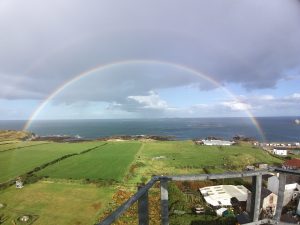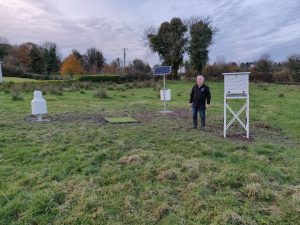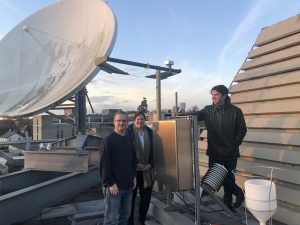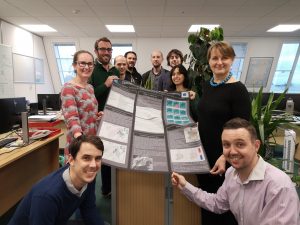A question we are frequently asked is “how do I get a job in the field of meteorology?“
The quick answer is that there are many routes but currently the most common is by studying physics or mathematics at university. However, working in a national meteorological service is not limited to people with the above qualifications.
Examples of roles in Met Éireann include weather forecasters, climatologists, research scientists, IT specialists, database experts, hydro-meteorologists, instrument engineers, liaison and funding officers, administrative staff, and radar and satellite meteorologists.
Job vacancies at Met Éireann are posted on our website and on the Public Jobs website. It is possible to sign up for job alerts on Public Jobs so that you don’t miss out on upcoming opportunities. During the past few months meteorologist, hydro-meteorologist and meteorological officer positions have been advertised. As an example, the essential qualifications and requirements for the role of meteorologist were the following:
“Candidates must have a minimum of a university degree with a First or Upper Second (2:1) Class Honours in one or more of the following (or a recognised equivalent):
- Physics
- Mathematics
- Mathematical Physics
- Meteorology
It would be highly desirable if candidates possess the following:
- experience in meteorology or climatology
- experience in scientific computing, particularly high performance computing in a Linux/Unix environment. “
Other information on meteorology-related jobs and postgraduate opportunities is available via the Met-Jobs mailing list maintained by Roger Brugge of Reading University in the UK, on the European Meteorological Society’s jobs page and the Western Kentucky University climate jobs and educational opportunities mailing list.
You can find out more about how some of the staff working at Met Éireann became involved in meteorology, and their particular roles in the organisation, by browsing through previous science week articles here (click on the images to learn about different roles), science week videos here or listening to our podcasts which are available here. More information on meteorology-related careers is available on the Royal Meteorological Society’s website and in video clips by the American Meteorological Society.
The field of meteorology is expanding and diversifying all the time. Growing areas include climate services,
data science and social science. This growth and expansion creates a demand for new skill sets.
Are you curious about the world around you? Would you like to work in an area of science that has many important applications in human matters? Are you interested in understanding the behaviour of the Earth’s atmosphere? Do you enjoy science and mathematics? Would you like to work with “Big Data” and supercomputers? If you answer yes to any of the above, then a career in meteorology may interest you.
The World Meteorological Organization (WMO) has produced a nice short video on why the world needs meteorologists.



